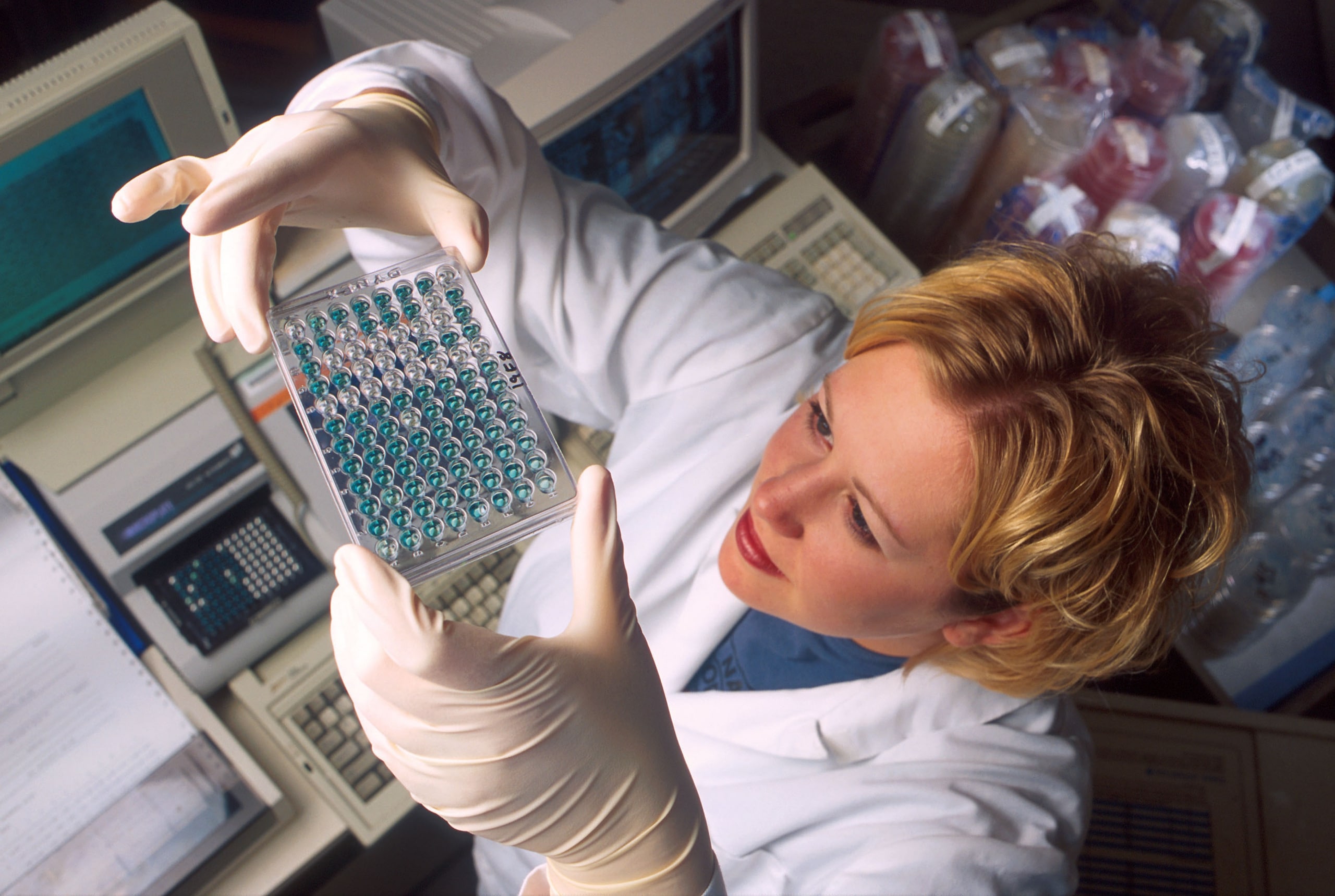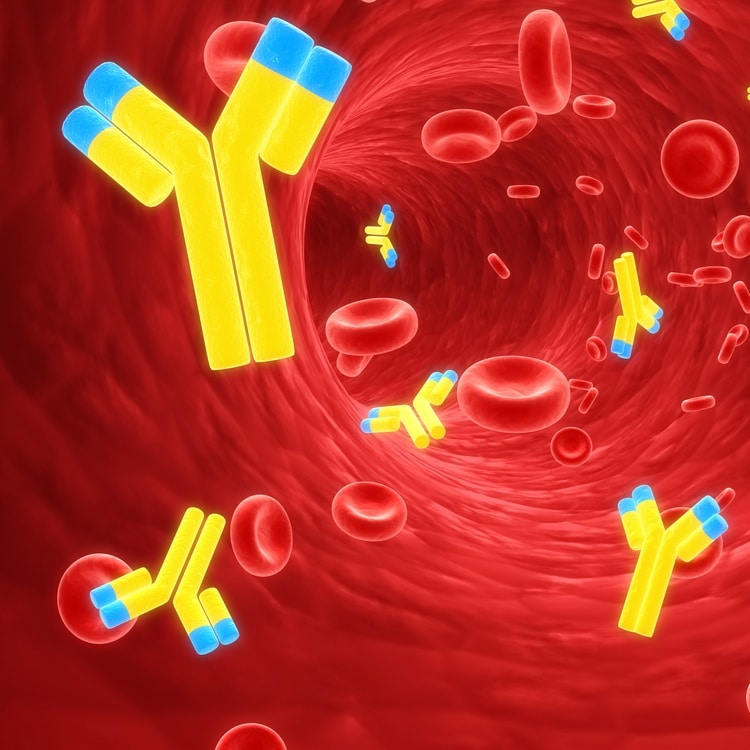The “Two-Headed Monster”: Vendors Tackle Antibody Validation
BioInformatics LLC’s 2017 Market for Research Antibodies: Keys to Success for Commercial Suppliers is a new research report based on a 36-question survey, completed by 1,074 scientists around the world between May 17 and July 4. The primary research report examines scientists’ preferences regarding the purchase and use of antibodies, as well as customer trust, satisfaction and “best-in-class” vendors in the sector. Respondents also made comments detailing their ideas on reproducible research using antibodies, the responsibilities of both vendors and researchers when it comes to using commercial antibodies, and much more.
The survey also asked scientists about the antibody reproducibility crisis, the elephant in the lab that has been looming over the life sciences research community for some time. Researchers commonly waste money, samples, time and talent before realizing that their antibodies are not working for the application they are using it for, and according to a 2015 assessment from the Human Protein Atlas, under 50% of all antibodies available on the market are unreliable. Organizations such as the Global Biological Standards Institute (GBSI) have taken on the challenge of creating and establishing standardized guidelines to ensure that researchers know what they are working with when they purchase antibodies from reagent vendors, but as Leonard P. Freedman, PhD, president of GBSI, told Instrument Business Outlook, the antibody reproducibility crisis is really a “two-headed monster.”
“There are researchers that could improve their own training methods, in terms of actually validating on their end [and] what they’re getting,” Dr. Freedman said. “And there are also the antibody producers and resellers that are producing very spotty quality antibodies. So it’s a real mess.”
Luckily, not all is lost when it comes to research antibodies, as companies such as Abcam and Cell Signaling Technology (CST) go through rigorous validation procedures to ensure that when it comes to their antibody products, what you see is what you get.
“At Abcam, providing high levels of validation for all of our reagents and kits has always been a priority,” said Alejandra Solache, PhD, vice president of New Product Development at Abcam. “With a requirement for labs to reduce costs and make efficiency savings, alongside the constant pressure to publish, we believe it’s crucial to work together with all stakeholders to improve research reproducibility.”
Abcam and CST are part of GBSI’s working group for the establishment of standards for antibody validation, and both companies have received awards for providing consistently high-quality reagents, with CST winning the 2016 CiteAb Award for “Researcher’s Choice” for a second year in a row, and Abcam receiving the 2017 CiteAb Antibody Company of the Year and Most Exciting Antibody Initiative awards. “The antibodies CST develops are always designed with the end-user in mind, and validated in the most appropriate model systems and techniques,” said Anthony Couvillon, Ph.D., scientific project manager, and Roberto Polakiewicz, Ph.D., chief scientific officer at CST. “This science-centric approach results in CST products leading the way to the discovery of new biomarkers, signaling pathways, disease mechanisms, and the development of new assay methods, and is the main reason why CST products are highly cited in the groundbreaking studies presented in major journals.”
Validation Techniques
By remaining at the forefront of new validation techniques and participating in working groups to solve issues in the antibody space, companies like Abcam and CST are able to drive innovation in the sector by providing researchers with accurate tools. “[W]e believe that the best way to contribute to scientific advancement is by providing reagents that work as they should the first time,” stated Dr. Solache. “We have an increased focus on determining the applications that scientists really need a product for, and also carrying out comprehensive changes to the ways in which we develop, test, and manufacture antibodies.”
As mentioned in BioInformatics LLC’s report, researchers are becoming more aware of the reproducibility crisis and their need for supplemental information providing proof of antibody validation. “In general, customers are demanding more data and engaging our product scientists and technical support teams with questions regarding our validation processes and application protocols,” said Dr. Couvillon and Dr. Polakiewicz. “CST welcomes this discussion, as it provides us the opportunity to share the extent of our antibody testing and validation with our customers, and to better understand what information they want to see in order to decide on the appropriate antibodies for their needs.”
Scientists participating in BioInformatics LLC’s report echoed these sentiments, discussing how both researchers and antibody vendors can ensure antibodies are validated when purchased. “One of the most common requests CST receives from our customers is for additional validation data to support the specificity or performance of an antibody in a particular application for a specific lot of one of our products,” said Dr. Couvillon and Dr. Polakiewicz. “CST displays extensive product data on our site, and we are moving towards supporting lot-specific results, demonstrating specificity, functionality and equivalent performance from one lot to the next.”
Abcam similarly provides additional validation information to its customers, and the company also ensures that its standards are certified through ISO9001 accreditation, as Dr. Solache stated. “We have an ongoing process of removing any products where data—either our own, or our customers’—shows specificity concerns,” she said. “This helps us to quickly address a customer’s issue, improve the quality of our overall offering, and build increased confidence in Abcam from scientists.”
Evolving Technologies
Also important in addressing the issues of antibody reproducibility is the need to evolve techniques and technologies to keep up with scientific innovations and improve validation methods. “The reproducibility crisis is a multifaceted issue, but one where we are making a big impact with the introduction of new tools and technologies to improve the manufacturing and validation of reagents such as antibodies,” said Dr. Solache.
These new tools and technologies include the incorporation of knockout (KO) cell lines for antibody validation, which was implemented in September 2015, according to Dr. Solache. “We use the extensive library of haploid (HAP1) KO cell lines from Horizon Discovery, which employs CRISPR/Cas9 technology to mutate a targeted gene,” she explained. “KO models provide an excellent standard for antibody validation as they represent a true negative control, to reliably determine antibody binding specificity. We were the first antibody supplier to offer this type of validation at scale.”
It’s safe to say that Abcam is at the forefront of using KO models in antibody validation, and has an exclusive supply agreement for KO cell lines with Horizon Discovery accelerating antibody validation. “We are using KO in antibody validation at an unprecedented scale: to date, we have validated and confirmed the specificity of over 1,000 antibodies,” Dr. Solache said. “The platform uses precise and efficient genome editing by CRISPR/Cas9, and a haploid cell line to eliminate potential masking of the KO from a second allele (as might be seen in diploid cell models). These cells serve as a true negative control to determine whether an antibody only reacts when the target protein is present.”
CST also focuses on accuracy for antibody validation. “For many years, CST’s policy has been to employ binary models to test and validate every antibody, including the use of cell and tissue models that positively and negatively express the target protein or the application of inhibitors and agonists that induce or block expression, translocation or activation of a protein or protein pathway,” said Dr. Couvillon and Dr. Polakiewicz.
This need for precision is reflected in GBSI’s Antibody Validation working groups’ efforts, from which the Institute has formulated a scoring system for antibody validation that serves as a validation standard. “For the scoring, the most important criteria for assessing whether an antibody is of high quality or not is really its specificity,” said Dr. Freedman. “That’s without a doubt the single biggest issue for the user. Does this antibody recognize specifically and selectivity the antigen, the protein, in a particular application? So the guidelines and the scoring are really focused much more on the physical characteristics of the antibody itself.”
As sensitivity and specificity are of utmost importance in antibodies, Abcam also uses recombinant antibody technology to ensure precision. “In fact, the vast majority of our rabbit monoclonal antibodies we offer are recombinant, which avoids hybridoma cell drift and batch-to-batch variation because the production processes are controlled and reliable,” explained Dr. Solache. “Our recent incorporation of phage display–based in vitro antibody technology complements our hybridoma-based platform and allows us to undertake the reproducible production of new monoclonal antibodies in just weeks, rather than months. We’ve been driving the shift towards supplying the best possible antibodies, and today we have over 10,000 recombinant monoclonal antibodies.”
And, as Dr. Solache stated, this precision is crucial to scientific advancement. “Through our commitment to raising antibody standards, [we] are striving to minimize the time, effort and money wasted in research,” she said. “By providing researchers with accurate and reproducible reagents, we are helping to speed up the progress of scientific discovery.”
For additional exclusive content from Abcam, CST and GBSI regarding the antibody reproducibility crisis, check out “Resolving Reproducibility: Companies Take on Antibody Validation” in the latest issue of Instrument Business Outlook, or click here for a trial subscription.
For more information on BioInformatics LLC’s 2017 Market for Research Antibodies: Keys to Success for Commercial Suppliers, click here.
Click here to learn more about GBSI’s Antibody Validation Initiative.





